Professor Rounaq Jahan
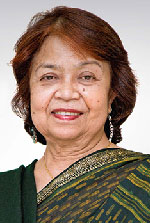
Distinguished Fellow
Centre for Policy Dialogue (CPD)
E-mail: rounaq@cpd.org.bd
rounaq44@gmail.com
Expertise
Politics, Governance, Gender, Development and Health
Professor Rounaq Jahan was a Senior Research Scholar and Adjunct Professor of International Affairs at the School of International and Public Affairs at Columbia University, USA. She was a Professor of Political Science at Dhaka University, Bangladesh and headed the women’s programme at the UN Asia-Pacific Development Center, Kuala Lumpur and the International Labour Office, Geneva. She was a Research Fellow at Harvard, Chicago and Boston universities in USA and Chr. Michelsen Institute in Norway. She was the Rajni Kothari Chair of Democracy at the Center for the Study of Developing Society (CSDS) Delhi, India
Professor Jahan received her PhD in Political Science from Harvard University. She is the author of several internationally acclaimed books and numerous articles. Most of her research is focused on issues of politics, governance, gender, development and health.
Books
Political Parties in Bangladesh: Challenges of Democratization (Dhaka: Prothoma Prokashan) 2015.
Bangladesh Politics: Problems and Issues New Expanded Edition (Dhaka: The University Press Ltd.) 2005
Editor, Bangladesh: Promise and Performance (London: Zed Books and Dhaka: The University Press, Ltd.) 2000.
The Elusive Agenda: Mainstreaming Women in Development (London: Zed Books) 1995.
Bangladesh Politics: Problems and Issues (Dhaka: The University Press, Ltd.) 1980.
Co-editor, Women and Development: Perspectives from South and SouthEast Asia (Dhaka: Bangladesh Institute of Law and International Affairs) 1979.
Pakistan: Failure in National Integration (New York: Columbia University Press) 1972.
Articles
“The Parliament of Bangladesh: Representation and Accountability” The Journal of Legislative Studies, Vol. 21, Number 2, 3 August 2015, pp 250-269 (20).
“Sustaining Progress Towards Comprehensive Reproductive Health Services in Bangladesh” (with Kaosar Afsana) Global Public Health, Vol. 10 (2) 180-182, February 2015.
“Reconstructing Democracy in South Asia” (with Rehman Sobhan), Akmal Hussain and Muchkund Dubey eds. Democracy Sustaianble Development and Peace, Delhi: Oxford University Press, 2014.
“Sustaining Advocacy for Women’s Empowerment for Four Decades, Women’s History 24, No. 4, Winter 2012.
“Bangladesh at a Crossroads,” Seminar, Vol. 576, August 2007.
“Securing Maternal Health through Comprehensive Reproductive Health Services: Lessons from Bangladesh,” American Journal of Public Health, Vol. 97, No. 7, July 2007, 1186-1191.
“Bangladesh”, Jaime Noce, ed. Governments of the World. Michigan: Thomas Gale, 2005.
“Bangladesh”, Countries at the Crossroads. New York: Freedom House, 2005, 65-82.
“Women, Gender, and Civil Society and Democracy Ideologies: South Asia”, Suad, Joseph, ed. Encyclopedia of Women and Islamic Cultures. Vol. II, Family Law and Politics. Leiden-Boston: Brill, 2004, 52-55.
“The Bangladesh Genocide”, Samuel Totten, ed. Teaching About Genocide: Issues, Approaches and Resources. Greenwich: Information Age Publishing, 2004, 143-153.
“Mobilizing Support to Sustain Political Will is the Key to Progress in Reproductive Health”, (with Adrienne Germain) The Lancet, vol. 364, August 28, 2004, 742-744.
“Genocide in Bangladesh”, in Samuel Totten, Wiliiam S. Parsons and Israel W Charny eds. Century of Genocide, second edition, New York Routledge, 2004.
“Bangladesh in 2003: Vibrant Democracy or Destructive Politics?” Asian Survey, XLIV, No 1, (January-February,) 2004, 56-61.
“Restructuring the Health system: Experiences of Advocates for Gender Equity in Bangladesh”, Reproductive Health Matters, 11(21), May 2003:1-10.
“Bangladesh in 2002: Imperiled Democracy”, Asian Survey, XLIII, No. 1, (February) 2003, 222-229.
“Politics in Bangladesh”, Encyclopedia Britannica, New Delhi, India, 2000.
“Mainstreaming Women and Development: Four Agency Approaches” in Kathleen Staudt ed., Women, International Development and Politics: The Bureaucratic Mire (Philadelphia: Temple University Press) 1997, 311-332.
“The Elusive Agenda: Mainstreaming Women in Development”, The Pakistan Development Review, Vol.35, no 4, 1996, 825-832.
“Afterword: Mainstreaming Women in Development” in Ann Leonard ed., Seeds 2, Supporting Women’s Work Around the World, New York: The Feminist Press, 1995, 214-219.
“Genocide in Bangladesh”, in Samuel Totten, William S. Parsons and Israel W. Charny eds., Genocide in the Twentieth Century: Critical Essays and Eye Witness Accounts, New York: Garland Publishers 1995, 371-402. Also in paperback in 1997.
“Women in South-Asian Politics”, Third World Quarterly, Vol. 9, No.3, July 1987, 848-870.
“Purdah and Participation: Women in the Politics of Bangladesh”, in Hanna Papanek and Gail Minnault, eds., Separate Worlds: Studies of Purdah in South Asia, Delhi: Chanakya Publication, 1982, 262-282.
“Women in the Politics of Bangladesh”, in Sylvia A. Chipp and Justin Green, eds., Asian Women in Transition University Park: Pennsylvania State University Press, 1980, 227-250.
“Bangabandhu and After: Conflict and Change in Bangladesh”, The Round Table, No. 261, January 1976, 73-84.
“Members of Parliament in Bangladesh”, Legislative Studies Quarterly, I, No. 3, August 1976, 355 370.
“Women in Bangladesh”, in Ruby R. Leavitt, ed., Women Cross Culturally The Hague: Mouton, 1976, 5-30.
“Marxist-Leninist Parties of Bangladesh”, Yearbook on International Communist Affairs, Stanford: Hoover Institute Press,1976, 239-244.
“Rural Women and National Development”, Women Speaking, IV, No. 5 January-March 1975
“Impressions of an Observer: International Women’s Year in Mexico”, International Development Review, XVII, No. 3, 1975, 36-40.
“Bangladesh in 1973: Management of Factional Politics”, Asian Survey, XIV, No. 2 (February) 1974, 125-135.
“Pakistan Divided”, in Gregory Henderson, Ned Lebow and John C. Stossinger, eds., Divided Nations in a Divided World, New York: McKay, 1974, 299-331.
“Bangladesh in 1972: Nation Building in a New State”, Asian Survey, XIII, No. 2 (February) 1973,199-210.
“Elite in Crisis: An Analysis of Mujib-Yahya-Bhutto Negotiations”, Orbis, (Summer) 1973, 575-597.
“Ten Years of Ayub Khan and the Problem of National Integration”, Journal of Comparative Administration, II, No. 3, November 1970, 277-298.
Monographs and Working Papers
“Political Parties in Bangladesh” CPD-CMI Working paper 8, CPD, August 2014.
“The Parliament of Bangladesh: Representation and Accountability” (with Inge Amundsen) CPD-CMI Working paper 2, April 2012.
“Strengthening National Mechanisms for Gender Equality and the Empowerment of Women: A Global Synthesis Study”, UNDAW, 2010.
“The Challenges of Institutionalizing Democracy in Bangladesh”, ISAS Working Paper: National University of Singapore, No. 39, Date March 6, 2008.
“Why Women, What Politics”, in Rina-Jimenez-David ed., Proceedings of the First Asia-Pacific Congress of Women in Politics (Manila: Philippines) 1994, 7-15.
“Participation of Women in Politics”, UN Economic and Social Commission for the Asia-Pacific (ESCAP), Status of Women in Asia and the Pacific Region. 1986
Women in Asia, Minority Rights Group Report, No. 45, 1981.
“Rural Power Structure and the Mobilization of Vote”, Working Paper, The CHR-Michelsen Institute, Bergen, Norway, 1979.
“National Liberation Movement and Some Post-Liberation Priorities in Bangladesh”, in Barbara Thomas and Spencer Lavan, eds., West Bengal and Bangladesh, Occasional paper, South Asia Series, East Lansing: Asian Studies Center, Michigan State University. 1973.
“East Pakistan During the Decade of Ayub”, in Peter J. Bertocci, ed., Prelude to Crisis: Bengal and Bengal Studies in 1970, Occasional paper no. 18, South Asia Series, East Lansing: Asian Studies Center, Michigan State University, 1972.
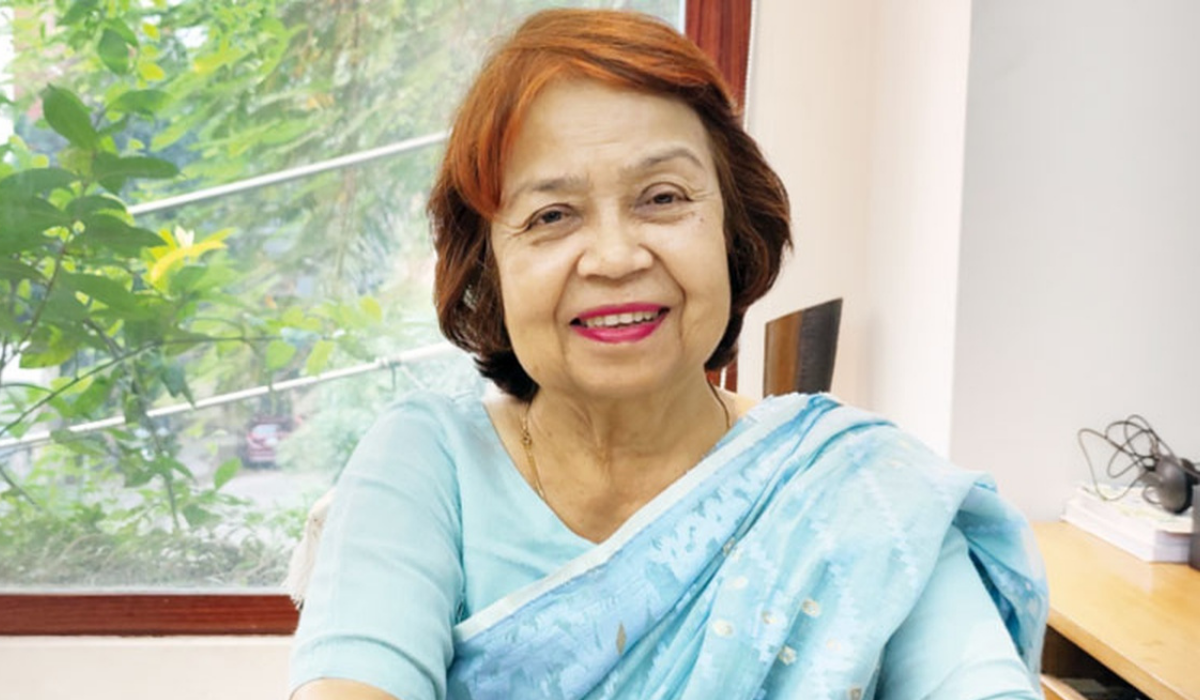
নির্বাচনী রাজনীতি এখনও অর্থ ও পেশিশক্তির প্রভাবমুক্ত নয় – রওনক জাহান
শেখ হাসিনার ১৫ বছরের স্বৈরাচারী শাসন, যেখানে গণতান্ত্রিক সংলাপ ও ভিন্নমতের পরিসর প্রায় বিলুপ্ত হতে বসেছিল, তাঁর পতনের পর আলোচনা, বিতর্ক ও প্রতিদ্বন্দ্বিতা প্রত্যাশিত ছিল।

রওশন জাহান: বোন, শিক্ষক ও সহযোদ্ধা – অধ্যাপক রওনক জাহান
রওশন জাহান বাংলাদেশে নারীর ক্ষমতায়ন বিষয়ে গবেষকদের অন্যতম অগ্রদূত। ৪ নভেম্বর তিনি মৃত্যুবরণ করেছেন। রওশন জাহান আমার বোন। আমাদের ছয় ভাইবোনের মধ্যে সবার বড়।

Remembering Roushan Jahan: My sister, teacher, comrade – Rounaq Jahan
Roushan Jahan, one of the pioneer researchers on women’s empowerment, passed away on Tuesday, November 4, 2025.
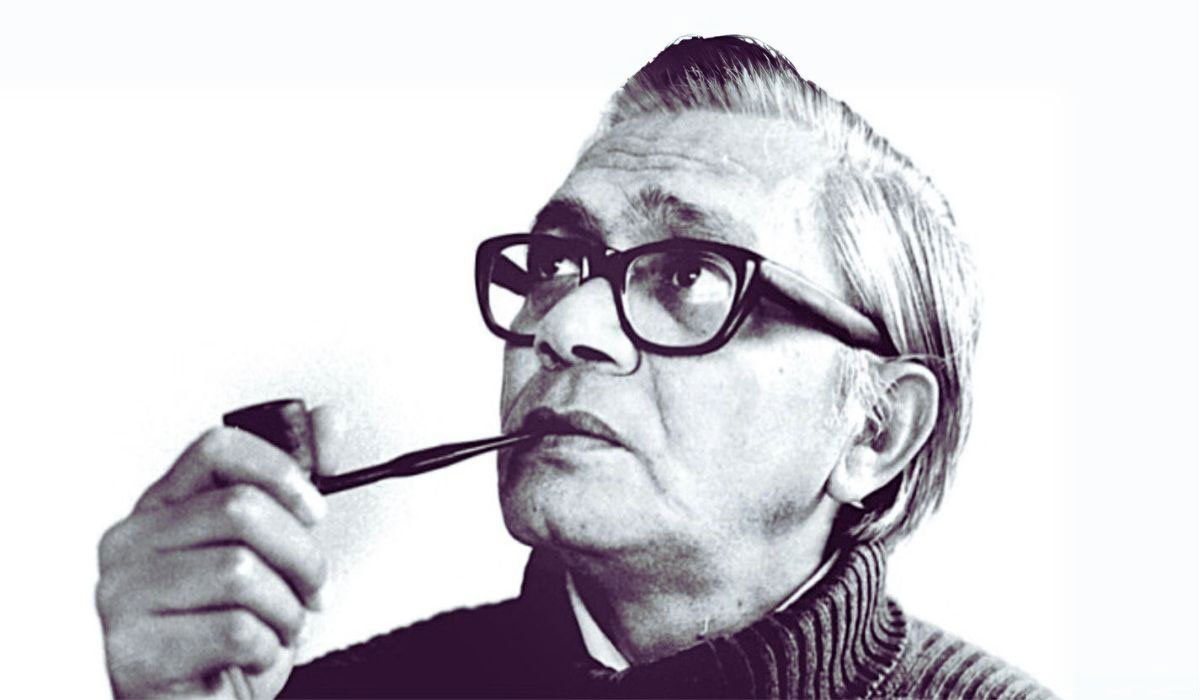
Remembering Badruddin Umar: An inspiring scholar – Rounaq Jahan
I had the privilege of getting acquainted with Badruddin Umar through the courtesy of Prof Abdur Razzaq. Our initial interaction was through writings.
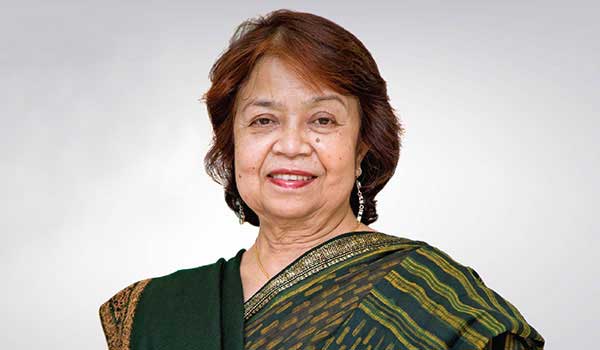
The challenge of breaking away from past undemocratic practices – Rounaq Jahan
The dramatic downfall of Sheikh Hasina’s regime has given rise to high hopes, particularly amongst the youth who participated in the July movement, about a new beginning for Bangladesh.

অগণতান্ত্রিক চর্চা থেকে বের হওয়াই এখন প্রধান চ্যালেঞ্জ – রওনক জাহান
গণতান্ত্রিক প্রতিষ্ঠান স্থাপন করতে হলে প্রথমেই প্রয়োজন গণতান্ত্রিক রাজনীতির চর্চা। এ ক্ষেত্রে যে বিষয়গুলো বিবেচনায় রাখতে হবে, তা নিয়ে লিখেছেন রওনক জাহান।

Democratic reforms must begin with political parties – Rounaq Jahan
The Daily Star speaks with Professor Rounaq Jahan, an eminent political scientist, author, and distinguished fellow at CPD, on the challenges and future of political reforms in Bangladesh.

অনিশ্চয়তার মাঝেও এগিয়ে চলা – রওনক জাহান
গত ১৫ বছরেরও বেশি সময় ধরে আমরা এক ধরনের স্বৈরাচারী শাসন কাঠামোর মধ্যে ছিলাম; যেখানে সব ক্ষমতা কেন্দ্রীভূত ছিল এক ব্যক্তির হাতে। এরপর মাত্র ৩৬ দিনের একটি গণঅভ্যুত্থানের মধ্য দিয়ে সেই ব্যক্তিকে আমরা অপসারণ করতে সক্ষম হই।
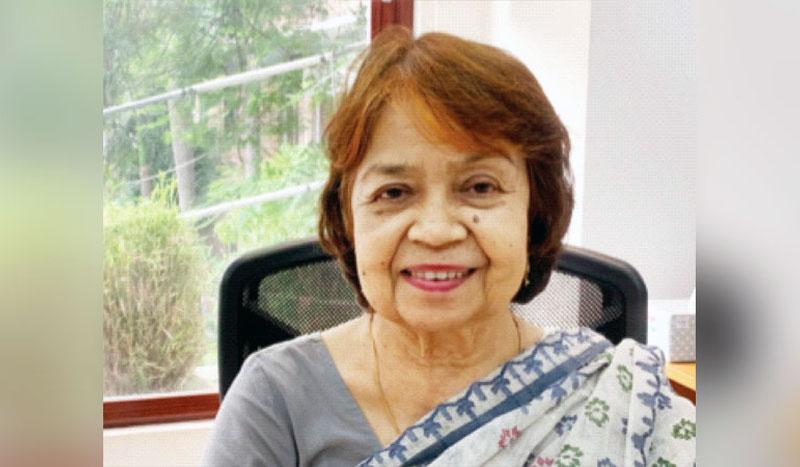
গণতন্ত্রের পথে যাত্রা কখনোই মসৃণ হয় না – ড. রওনক জাহান
রাষ্ট্রবিজ্ঞানী ও সেন্টার ফর পলিসি ডায়ালগের (সিপিডি) সম্মাননীয় ফেলো ড. রওনক জাহান সমকাল-এর সঙ্গে কথা বলেছেন জুলাই গণঅভ্যুত্থানের প্রেক্ষাপট ও গণঅভ্যুত্থান-পরবর্তী রাজনৈতিক বাস্তবতা নিয়ে।

রাজনৈতিক বিভাজন সহনীয় পর্যায়ে রাখতে হবে – রওনক জাহান
Originally posted in প্রথম আলো on 2 February 2024 রাজনৈতিক বিভাজন সহনীয় পর্যায়ে রাখতে হবে – রওনক জাহান বিশেষ সাক্ষাৎকার রাষ্ট্রবিজ্ঞানী ও সেন্টার ফর পলিসি ডায়ালগের (সিপিডি) ডিস্টিংগুইশড ফেলো রওনক জাহান প্রথম আলোর সঙ্গে কথা বলেছেন গত ৭ জানুয়ারির নির্বাচন–পরবর্তী দেশের রাজনৈতিক পরিস্থিতি, গণতন্ত্র, দলগুলোর কার্যক্রম ও সাংগঠনিক অবস্থা এবং রাজনীতির সামনের চ্যালেঞ্জগুলো নিয়ে। সাক্ষাৎকার নিয়েছেন […]


